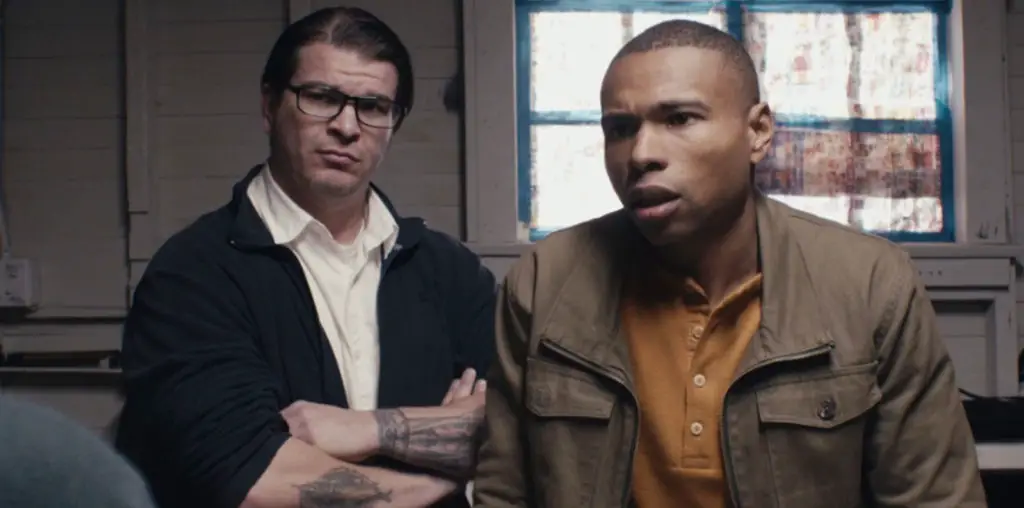
You want to believe it was some tasteless April Fool’s Day joke, that a ghost had called Leslie Cheung back from that 24th floor balcony, convincing him not to jump, as had happened, eerily, as it turns out, in the climax of his last film, “Inner Senses.”
Alas, reality was much more tragic. Cheung, 46, scrawled out a note — “Depressed!” was the first sentence — and leapt from the Mandarin Oriental Hotel in Hong Kong on April 1, thus ending one of the more remarkable acting and performing careers in Asian entertainment history.
Cheung is an indispensable part of Hong Kong’s golden era of filmmaking — roughly 1986-93 — starring in landmark films such as John Woo’s “A Better Tomorrow,” the most influential action film of the last 20 years; Stanley Kwan’s “Rouge”; Ching Siu-Tung’s “A Chinese Ghost Story,” which forever changed the Chinese costume epic; Ronny Yu’s
“The Bride With White Hair”; Peter Chan’s “He’s the Woman, She’s the Man”; and several films with auteur Wong Kar-Wai.
He is one of a handful of male leads who will forever be instantly identified with that era — along with such luminaries as Chow Yun-Fat, Jackie Chan, Jet Li, Andy Lau, Tony Leung Chiu-Wai and Tony Leung Ka-Fai.
Rumors, innuendos and theories are being “reported” by Hong Kong’s notorious press corps, which never met a scandal they couldn’t over cover, but one thing is for sure: It surely ranks as one of the most shocking suicides in movie star history. In China and Hong Kong, female icons such as silent actress Ruan Lingyu and two from the 60s, Lin Dai and Betty Loh Tih, sent nations into mourning by ending their lives at the height of their careers. Marilyn Monroe, of course, is the American equivalent.
Among male suicides, no Asian superstars come to mind, but in the last generation, Americans Kurt Cobain and Freddie Prinze — like Cheung, charismatic cultural icons at their peak — went senselessly into the night.
Cheung’s death, along with the SARS scare, cast a pall over Sunday’s Hong Kong Film Awards. Cheung was nominated for Best Actor for “Inner Senses,” but lost to Tony Leung Chiu-Wai in the Best Picture winner “Infernal Affairs.”
Sunday’s ceremony did include a tribute to Cheung. Four leading pop singers, dressed in black, sang one of Cheung’s hit songs to pay tribute to him before the presentation ceremony began.
A bad-boy rocker, who was compared to Elvis Presley when he hit the top of the Cantopop scene in the early 1980s, Cheung Kwok-wing was born on Sept.‚12, 1956 in Hong Kong, the youngest of 10 children. His father, a tailor, once dressed William Holden and Alfred Hitchcock. Kwok-king was educated in Britain, then spent his 20s laying the foundation of a popular singing career.
When it came time to choose his English name, Kwok-king went with Leslie — after Leslie Howard, who gave his favorite performance in one of his favorite movies, “Gone With the Wind.” It was an apt choice. If Chow was the Cary Grant of Hong Kong, Lau the Frank Sinatra and Leung Chiu-Wai the Holden, Leslie was Leslie — pure, engaging, with an intriguing mixture of strength and fragility.
You can see the dashing hero with the deep heart in “A Chinese Ghost Story” and “The Bride With White Hair” as worthy of Howard’s lovable rogue in “The Scarlet Pimpernel”; the tragic, sorrowful homosexual lovers of Wong’s “Happy Together” and Chen Kaige’s “Farewell My Concubine” in the “Of Human Bondage” tradition; the arrogant snob humorously grooming his protégé in “He’s the Women, She’s the Man” as a Cantopop flip side to Howard’s Henry Higgins in the original “Pygmalion.”
As a viewer, you felt protective toward him — no one did wounded pride or seeming nonchalance better. And with such range! In a two-year period, he not only played the dependent gay opera singer in “Concubine,” his biggest hit in the West, and the record producer disillusioned by both the Hong Kong record industry and his own sexuality in
the giddy hit “He’s a Woman,” but also a moody swordsman in Wong’s surrealist epic Ashes of Time.
That was after his sexually charged performance opposite Maggie Cheung in Wong’s benchmark movie “Days of Being Wild” (1990). And how about an addled filmmaker turning to porn films in “”Viva Erotica” (1996)? Brilliant stuff.
Cheung could play anything, it seems, but by far his most difficult role seems to have been real life. He hid his homosexuality for years, then became the first Hong Kong star of his magnitude to come out publicly, and his portrayal of gay characters, virtually taboo for male Chinese stars, was groundbreaking.
He was said to have suffered from depression, and was seeing a psychiatrist at the time of his death. He quit singing in 1989, vowing he was through — then picked up the microphone again in 1996.
After “Happy Together” scored him Best Actor nods at the Hong Kong Film Awards and Taiwan’s Golden Horse Awards, Cheung’s career hit a rough patch. The man used to working with top-notch filmmakers was for some reason reduced to ho-hum action pictures (“Double Tap,” “Moonlight Express”) and a stray romantic comedy (“Okinawa Rendez-vous”).
“Inner Senses” seemed to indicate a comeback. Though a rip-off of The Sixth Sense, it was powered by two intense performances, from Cheung, a method-acting perfectionist, and female lead Karena Lam, who also was nominated for a Hong Kong award (she sees dead people, but she’s a lot hotter-looking than Haley Joel Osment).
But all was not well. His last CD was released in 2001, and it’s title, “Forever Leslie,” seemed like a farewell. Friends and co-workers noticed an increased moodiness. There seemed to be strain to his 20-year relationship with lawyer Daffy Tong, who had helped Cheung invest his earnings. At his death, Cheung had reportedly amassed a personal fortune of $67 million.
In February, an early ’80s film Cheung made before he had edged into superstardom, “Teenage Dreamers,” was released as part of the Shaw Bros. titles, which had not been seen since its release. Schoolgirl Chow Sau Laan develops a major crush on Cheung, who plays a teenage drama student whose passion for acting and boyish good looks would make any girl swoon.
The English translation of the original Chinese title is “Lemon Cola,” and aptly Cheung’s charisma is both sweet and sour — innocent, fun and emotionally overloaded, like so many teenage loves. The line between that early performance and “Rouge,” “”Farewell My Concubine” on through “Inner Senses” makes sense now, even if the way he chose to leave this life doesn’t.
What ghost could have brought Leslie back from the edge of that balcony? We’ll never know. All that’s left is his brilliant work, which will stand the test of time.
A LESLIE SIX PACK
Leslie Cheung’s six best films available on DVD in America (with year, director, and DVD distributor):
“A Better Tomorrow” (1986, John Woo) Anchor Bay
“A Chinese Ghost Story” (1987, Ching Siu-Tung) Tai Seng
“Rouge” (1987, Stanley Kwan) Tai Seng
“The Bride With White Hair” (1992, Ronny Yu) Tai Seng
“Farewell My Concubine” (1993, Chen Kaige) Miramax
“Happy Together” (1997, Wong Kar-Wai) Kino International

